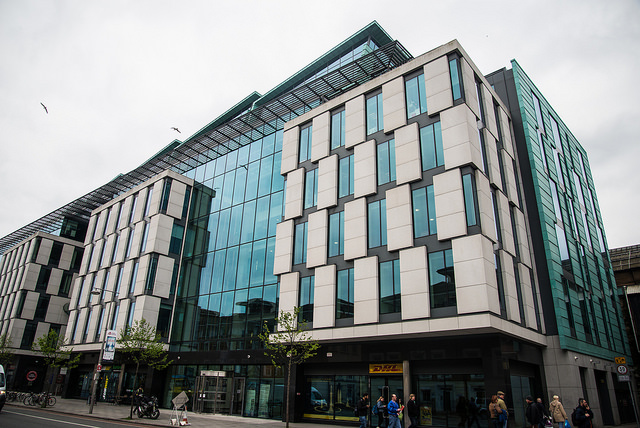Medicine students on placement this year will have to buy their own surgical scrubs, rather than getting them from hospital dispensers as was previously the case.
An email from College seen by The University Times told medicine students that they should purchase three pairs of scrubs, one pair ready for wear the next day and one pair in the wash.
The scrubs will cost €30 per pair and a small financial assistance fund has been set up to assist students struggling with the cost, which a small number of students have already availed of.
In an email statement to The University Times, Catherine O’Mahony, a Trinity Press Officer said: “The HSE and our partner hospitals agreed to take students back on clinical placements with a number of stipulations relating to COVID-19 safety, one of which is a requirement for our students to wear scrubs.”
“The scrubs must make them clearly identifiable as TCD student doctors which is why they cannot use hospital-issued scrubs. The School of Medicine sourced scrubs that were competitively priced (30 euro per pair) and embroidered with the TCD logo and ‘School of Medicine’”, O’Mahony said.
Traditionally, medicine students took scrubs from a dispenser before entering surgery. However given the increased emphasis on sanitation and hygiene due to coronavirus, like most other health science students on placement, scrubs will be required all the time instead of just during surgical procedures.
Meanwhile, Trinity will have on-site coronavirus testing facilities in the new academic year to prevent clusters developing in the College community.
The College Health Service is implementing testing facilities for staff and students ahead of the beginning of term.
Speaking to The University Times, Dr David McGrath, director of the College Health Service said that it was having testing facilities was “absolutely critical for the re-opening of the College and for the College to be able to stay open and for us to control things as much as possible”.
“If a staff member or a student has symptoms on any given day and they phone the health centre, what we can do is take out the lag time between the test being ordered and the test being completed.”
McGrath said that because of the large backlog in testing in March, April and May, there was a period when testing some people was redundant because it was “more than two weeks since they had the symptoms and even if we test them now and the test is positive it doesn’t matter because they are no longer infectious”.
A key concern for McGrath and the wider College Health Service is the development of clusters within the Trinity community, with McGrath pointing to accommodation as a particular concern for College.







